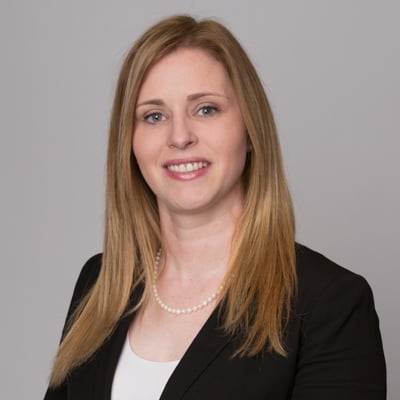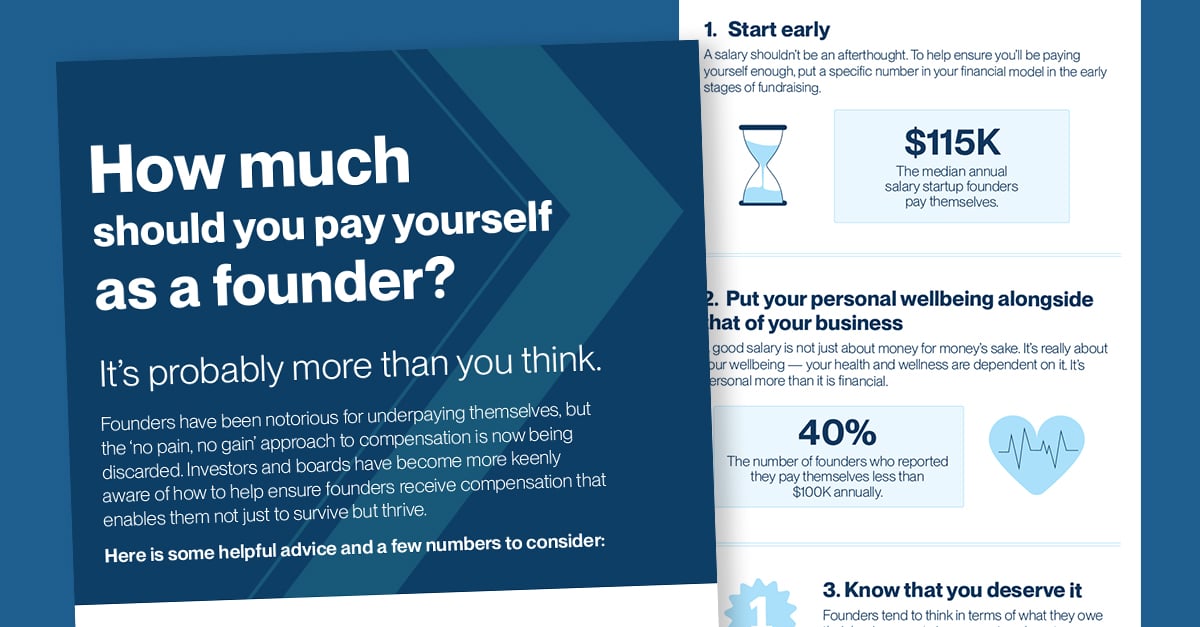Key takeaways
-
LLCs and S corporation business structures offer benefits but may cause you to miss substantial tax savings under the Qualified Small Business Stock exclusion.
-
Structuring your company as a C corporation is a requirement to qualify for the QSBS exclusion.
-
The potential tax savings via the QSBS exclusion is the greater of $10 million or 10 times your cost basis, whichever is higher.
Podcast transcript
Ann: You're here again with us for "Business Meets Personal Wealth." Thank you for joining us. On today’s episode, we’re talking about how the timing of an LLC to C-corp conversion may offer significant tax savings. This is going to be a fun and complex one. I'm Ann Lucchesi, Managing Director with SVB Private. What do I do? I work with founders every day to navigate their business and wealth journeys.
Episode 4, with my colleague, Danielle Greene, was really well received, so I've asked her to join me once again. If you haven't listened to that one, we cover what to do if you're being acquired before your QSBS shares are eligible for their five-year mark and get that special treatment. So, Danielle, can you remind folks how you support clients here at SVB Private?
Danielle: Of course, Ann. And thanks so much for having me back. The last episode was a lot of fun. So, I'm Managing Director of Wealth and Fiduciary Strategies, and similar to you, I work with founders to navigate their business and personal wealth goals and identify strategies to help them meet those goals efficiently.
Ann: So, I want to start with the idea of when you start a company, right, there are multiple different structures. And if any of you have read the article that I have on our Insights page called "Understanding Qualified Small Business Stock and the Capital Gains Exemption," you will know that you will want to have acquired your shares from a C-corp to get the treatment. However, there's some caveats to this. So, first, I thought we'd start with just talking about different structures. So first, can we talk about, Danielle, what an LLC is for purposes of what it means to them on a tax perspective and some protections, some high-level things around an LLC?
Danielle: Sure. An LLC is a hybrid entity and it combines characteristics of a corporation such as limited liability as the name suggests, and it also has characteristics of a partnership with flow-through income and losses.
Ann: Okay, great. And so, contrast that now to if they started as a C-corp, what does that look like for them?
Danielle: So, a C-corporation is its own tax-paying entity. Income and loss are paid at the corporate level. If a C-corp pays dividends to its shareholders, the shareholders have to pay income tax on those dividends on their individual level.
Ann: So, it might be advantageous early on as you start a business to think about the flow through. One of the things I've seen happen to some founders is they'll start it as a C-corp, but then their accountant tells them to take an S-corp election. Could you speak to what that is and why we don't want them to do that?
Danielle: Sure. So, an S corporation is a corporation that makes a special election with the Internal Revenue Service to have it treated as a flow-through pass-through similar to an LLC.
Ann: So, you get the positive tax treatment, but there is a negative side.
Danielle: The negative side is that if you want QSBS eligibility, an S-corp will kill it.
Ann: Yes. So, stay away from that. Now...
Danielle: Stay away from that.
Ann: ... traditionally, what we've always thought is, hey, if you're in the innovation economy and you know that likely you're going to meet those metrics for QSBS qualification, start your company as a C-corp, so you get that eligibility date starting immediately, you can meet that five-year metric sooner.
The world has shifted a little bit and in that shifting, one of the things that's happened is that companies are actually raising much larger amounts of money, but prior to their kind of first institutional round, and as Danielle, you and I both know, when they raise the institutional round, most venture capitalists will want them to convert from an LLC to a C-corp if they have not done that.
In this kind of transition, the idea of the large seed runs. Let's talk a little bit about what happens, you've started as an LLC, you're now going through and you're going to convert to a C-corp. How does it work for the purposes of valuation of your shares, and then what's the impact to that QSBS?
Danielle: Sure. So I think what's important is basis here, right? Because the QSBS is the greater of $10 million or 10 times basis. So in these conversions, the basis of the property is equal to the fair market value when it's converted to a C-corp. And I'll also note it resets the clock for the five-year holding period.
Ann: Perfect. Okay. So, let's just say I'm a founder and I own... at the time of conversion, I've kind of started the company, it's an LLC, I own 20% of the company, and it's valued at about $25 million at the time of the conversion from the LLC to the C-corp. If I understand correctly, my basis then would be $5 million, right? Twenty percent of the $25 million, it would be $5 million. What does this mean that they would be eligible then for the greater of those two, which in this case would be 10 times $5 million so they could actually get a $50 million exclusion?
Danielle: That's exactly right.
Ann: Wow. So this is a super impactful thing if the timing is right, but one of the things they need to be very careful of is the limitation of the timing on when you acquire the shares, the gross assets test. Could you talk to what the gross assets test is just momentarily?
Danielle: Sure. The gross assets at conversion has to be no greater than $50 million. So, as you mentioned, these big seed rounds, if that infusion is going to get the assets to exceed $50 million, then it will not be QSBS eligible.
Ann: So, if they time this wrong, let me see. I'm going to try to distill what you said. If they time this correctly, they could end up having a very large exclusion. And in fact, as we talked in our last episode, stacking that in the assumption of a very large, you know, liquidity event. But if they time it wrong and at the time of conversion it's $51 million in gross assets, none of their shares would be eligible. Is that correct?
Danielle: That's correct, yes.
Ann: Okay. So, it sounds to me like what they really need to do is if they're going to try to do this and time it correctly is maintain your LLC status but also engage with some advisors to make sure that you are not going to exceed that threshold at the point in time when you maybe take an institutional round and get that conversion to the C-corp.
Danielle: That's good advice.
Ann: Thank you so much for joining me today, Danielle. I really appreciate it. And thanks to all of you out there for joining us as well. Subscribe to the SVB Private Podcast wherever you listen to your podcast to get notified when new episodes are published. Thanks again for joining us today at "Business Meets Personal Wealth." We'll see you here next time.
















